What's New
Displaying results 1351 - 1360 of 4052
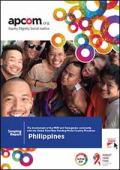
Resource | Publications,
APCOM shares the Global Fund against AIDS, Tuberculosis and Malaria's (GFATM) goal of increased meaningful participation among MSM and transgender community at a country level in Asia and the Pacific. The Global Fund New Funding Model (NFM) is an opportunity for the community to get engaged meaningfully in country processes for a robust grant. Specifically, this report aims to look at and gather the experiences and level of participation of the MSM and Transgender community in the Philippines (New) Funding Model project development process.
This report focuses to capture the following aspects:
1. The level of knowledge and understanding of the MSM and transgender community on the
Global Fund Country Processes;
2. The level of engagement of the MSM and transgender community with the country dialogues
3. The level of engagement of the MSM and transgender community with the Country Coordinating
Mechanism (CCM); and
4. The level of engagement of the community with the Global Fund Country Teams.
This document has been funded by grant 2014097 to the Consortium of MSM and Transgender Networks by the Robert Carr Civil Society Networks Fund.
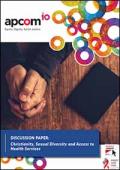
Resource | Publications,
Mainstream, traditional and conservative forms of institutional and popular Christianity in Asia-Pacific countries such as Singapore, the Philippines, India, Hong Kong and Tonga are often disapproving of sexual diversity and gender variance. People who attempt to access HIV preventive measures are often held in suspicion and regarded as indulging in ‘sin’ (Wanje 2012). This becomes particularly problematic for gender variant and sexually diverse people who are often automatically connected to HIV and AIDS. Furthermore, People Living with HIV (PLHIV) are frequently perceived as being punished for their ‘sin’ (Pieters 1994).
This paper examines the attitudes of institutional and popular Christianity towards men who have sex with men (MSM), transgenders (TG) and HIV, the impact of such attitudes towards MSM and TG in relation to HIV prevention and treatment, and Christian teachings and strategies that affirm MSM, TG and PLHIV.
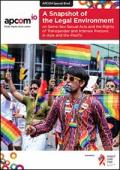
Resource | Publications,
A Snapshot of the Legal Environment on Same-Sex Sexual Acts and the Rights of Transgender and Intersex Persons in Asia and the Pacific is produced on the occasion of the 28th ILGA World Conference in Bangkok, Thailand. The Snapshot provides an overview of the legal environments in the Asia-Pacific region to inform the issues, challenges and opportunities regarding the rights of men who have sex with men and women who have sex with women, as well as transgender and intersex persons.
The data provided in this Snapshot may serve as an indication of the realities of the lives and experiences of LGBT people in the region. However, it is important to understand that inconsistency of legal interpretation within national penal codes and/or policies is often found, and law enforcement does not always adhere to the written legislation.
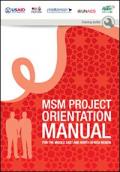
Resource | Tools,
The manual was developed to provide planners and managers working with HIV men who have sex with men (MSM) programme prevention and support services with the necessary information to develop sympathetic, evidence-based and comprehensive HIV prevention and support services for MSM in the Middle East and North Africa (MENA) region. The resource is useful to both experienced programme implementers as well as those who are beginning to plan new HIV prevention and care services for MSM.
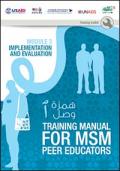
Resource | Tools,
This module is focused on:
- developing an enabling environment for programme implementation through
partnership development and advocacy
- mapping
- reviewing the different components of an effective programme
- the importance of developing effective referral mechanisms
- how to develop indicators to measure progress and monitor programme outputs
the importance of supervision
- programme documentation
- reflecting on an ethical framework to guide programme implementation.
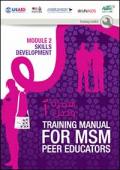
Resource | Tools,
In this module, participants learn and practise the skills necessary to work with their clients to promote and encourage behaviour change. This will include exploring their own attitudes and beliefs in order to reflect on how these may influence their work with clients, both positively and negatively.
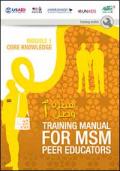
Resource | Tools,
The training presented in this manual has been developed to help operationalise the UNAIDS MENA regional publication HIV and outreach programs with men who have sex with men (MSM) in the Middle East and North Africa (MENA): from a process of raising awareness to a process of commitment.
It provides technical information and practical tools for peer educators to use as part of MSM outreach programmes in the Middle East and North Africa. These programmes aim to reduce the spread of HIV and other sexually transmitted infections (STIs) among MSM within a framework and context where their privacy, confidentiality and rights are respected.
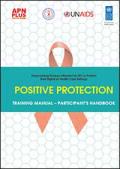
Resource | Tools,
Women affected by HIV in Nepal have reported violations of their rights, particularly in health care settings, being subject to forced and coerced sterilization or abortions, or denied access to sexual and reproductive health services. Yet, according to a UNDP Report released in 2013, not a single case was officially filed claiming discrimination or abuses in a health care setting. This is why this toolkit is needed and why it is vital for Nepal's fight against HIV.
This training manual, Positive Protection: Empowering Women Affected by HIV to Protect their Rights at Healthcare Settings, will help ensure no one is left behind or overlooked in our work to achieve the Sustainable Development Goals (SDGs). This manual is aimed at empowering women with HIV to know and protect their rights, and to gain access to justice in cases where those rights have been violated.
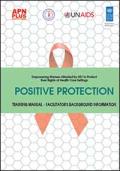
Resource | Tools,
Positive Protection is a training manual to empower civil society organizations to protect the rights of women affected by HIV at health care settings in Nepal. It was developed by the United Nations Development Programme (UNDP), the Asia Pacific Network of People living with HIV (APN+) and the National Federation of Women Living with HIV and AIDS in Nepal, in partnership with UNAIDS.
The training manual was developed based on consultations with a wide range of national civil society groups in Nepal, including a two-day consultative workshop in November 2014 in Kathmandu to agree on the main areas to be included in the manual, and a two-day meeting in August 2015 in Nepal to agree on and validate the final draft of the manual.
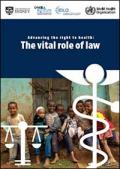
Resource | Publications,
This report aims to raise awareness about the role that the reform of public health laws can play in advancing the right to health and in creating the conditions for people to live healthy lives. By encouraging a better understanding of how public health law can be used to improve the health of the population, the report aims to encourage and assist governments to reform their public health laws in order to advance the right to health.
The report highlights important issues that may arise during the process of public health law reform. It provides guidance about issues and requirements to be addressed during the process of developing public health laws. It also includes case studies and examples of legislation from a variety of countries to illustrate effective law reform practices and some features of effective public health legislation.





